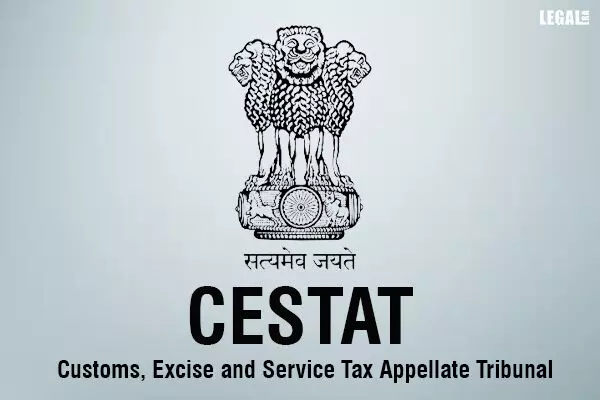- Home
- News
- Articles+
- Aerospace
- AI
- Agriculture
- Alternate Dispute Resolution
- Arbitration & Mediation
- Banking and Finance
- Bankruptcy
- Book Review
- Bribery & Corruption
- Commercial Litigation
- Competition Law
- Conference Reports
- Consumer Products
- Contract
- Corporate Governance
- Corporate Law
- Covid-19
- Cryptocurrency
- Cybersecurity
- Data Protection
- Defence
- Digital Economy
- E-commerce
- Employment Law
- Energy and Natural Resources
- Entertainment and Sports Law
- Environmental Law
- ESG
- FDI
- Food and Beverage
- Gaming
- Health Care
- IBC Diaries
- In Focus
- Inclusion & Diversity
- Insurance Law
- Intellectual Property
- International Law
- IP & Tech Era
- Know the Law
- Labour Laws
- Law & Policy and Regulation
- Litigation
- Litigation Funding
- Manufacturing
- Mergers & Acquisitions
- NFTs
- Privacy
- Private Equity
- Project Finance
- Real Estate
- Risk and Compliance
- Student Corner
- Take On Board
- Tax
- Technology Media and Telecom
- Tributes
- Viewpoint
- Zoom In
- Law Firms
- In-House
- Rankings
- E-Magazine
- Legal Era TV
- Events
- News
- Articles
- Aerospace
- AI
- Agriculture
- Alternate Dispute Resolution
- Arbitration & Mediation
- Banking and Finance
- Bankruptcy
- Book Review
- Bribery & Corruption
- Commercial Litigation
- Competition Law
- Conference Reports
- Consumer Products
- Contract
- Corporate Governance
- Corporate Law
- Covid-19
- Cryptocurrency
- Cybersecurity
- Data Protection
- Defence
- Digital Economy
- E-commerce
- Employment Law
- Energy and Natural Resources
- Entertainment and Sports Law
- Environmental Law
- ESG
- FDI
- Food and Beverage
- Gaming
- Health Care
- IBC Diaries
- In Focus
- Inclusion & Diversity
- Insurance Law
- Intellectual Property
- International Law
- IP & Tech Era
- Know the Law
- Labour Laws
- Law & Policy and Regulation
- Litigation
- Litigation Funding
- Manufacturing
- Mergers & Acquisitions
- NFTs
- Privacy
- Private Equity
- Project Finance
- Real Estate
- Risk and Compliance
- Student Corner
- Take On Board
- Tax
- Technology Media and Telecom
- Tributes
- Viewpoint
- Zoom In
- Law Firms
- In-House
- Rankings
- E-Magazine
- Legal Era TV
- Events
CNG Kit Installation Not Taxable Without Separate Invoice: CESTAT

CNG Kit Installation Not Taxable Without Separate Invoice: CESTAT
The Ahmedabad bench of the Customs, Excise, and Service Tax Appellate Tribunal (CESTAT) presided over by Ramesh Nair (Judicial Member) and Raju (Technical Member) has issued a ruling clarifying that service tax is not payable on CNG kit installations unless separate invoices are issued for the service itself.
In this case, an authorised service station (referred to as the assessee) installed CNG kits on vehicles. However, they did not issue separate invoices for the installation service, although they did pay VAT on the installation work. During a routine audit, authorities discovered that the assessee had not included the cost of materials (consumables) used in the installation and free service commission in the taxable value for service tax. This omission resulted in the underpayment of service tax.
CESTAT acknowledged that the assessee did perform the installation service, as evidenced by their payment of VAT. However, the tribunal also noted the absence of separate invoices specifically for the installation service. Without such documentation, CESTAT could not definitively determine if a taxable service was rendered. As a result, the tribunal ruled that the demand for service tax on the installations could not be dropped solely because separate invoices were missing.
The Commissioner affirmed the demand for service tax, including interest and penalties, while simultaneously dismissing the demand raised in the show cause notice.
The department argued that the Commissioner erred by granting benefits to the assessee, resulting in a lesser confirmation of the demand along with consequential interest and penalty. In response, the Committee, under the provisions of the Finance Act, 1994, directed the Commissioner to seek the Tribunal’s intervention for a precise determination of the relevant points arising from the order.
The CESTAT emphasised the importance of factual verification regarding separate bills for spare parts and the payment of sales tax or VAT. Such verification is crucial before arriving at a decision to drop the demand. In the interest of justice, these issues warrant thorough examination.


